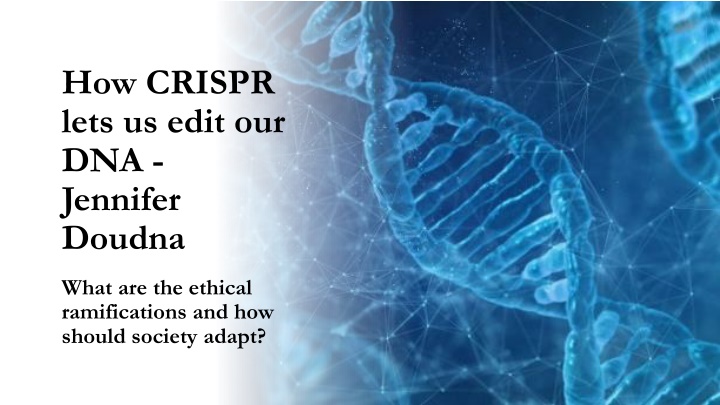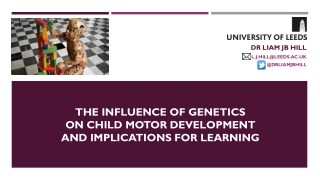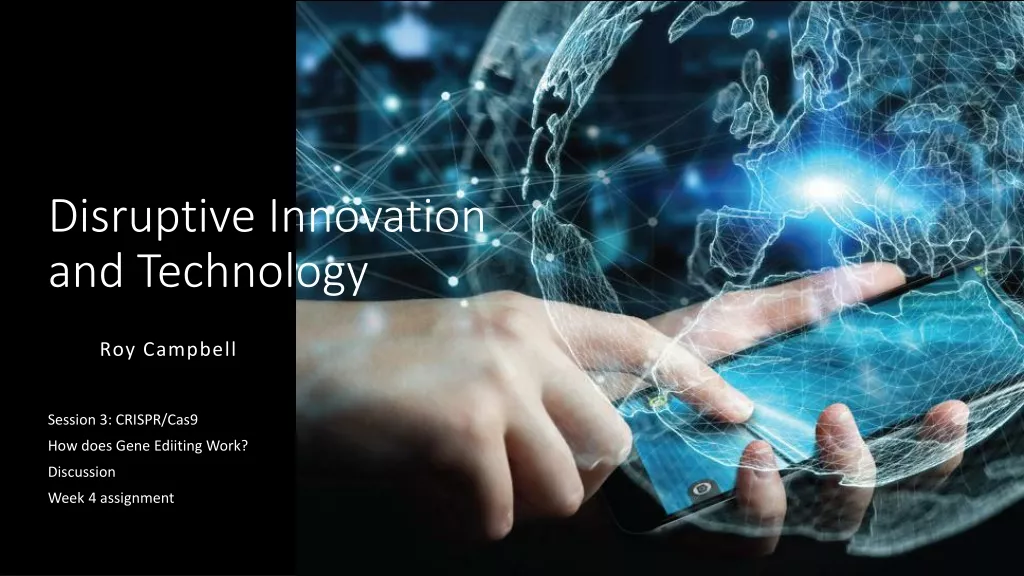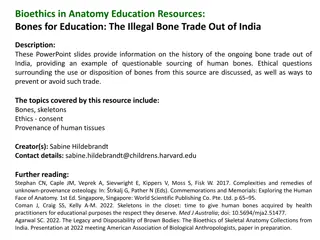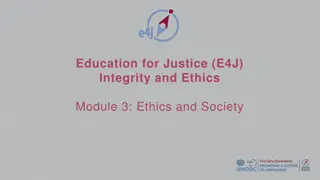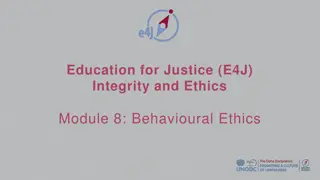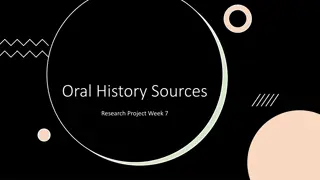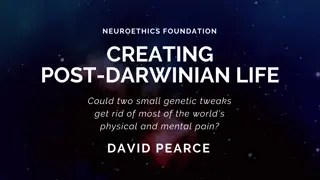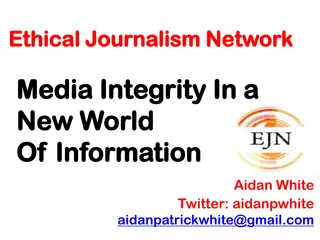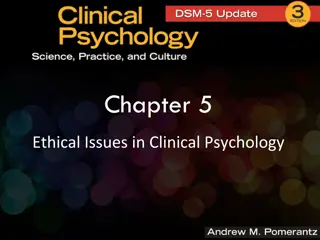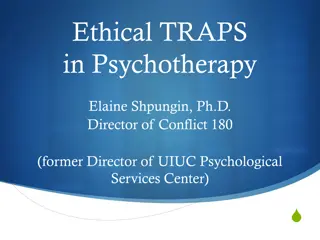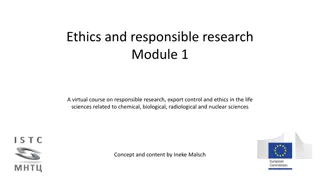CRISPR Technology: Ethical Ramifications and Societal Implications
CRISPR technology allows us to edit our DNA, posing ethical dilemmas on its potential impact on society and the need for responsible use. Explore the controversies surrounding gene editing, from healthcare advancements to concerns about unintended consequences and ethical considerations. Discover the implications of CRISPR on human evolution and the potential for personalized medicine. The dream of harnessing CRISPR for healthcare, agriculture, and scientific research brings both promise and ethical challenges.
Download Presentation

Please find below an Image/Link to download the presentation.
The content on the website is provided AS IS for your information and personal use only. It may not be sold, licensed, or shared on other websites without obtaining consent from the author.If you encounter any issues during the download, it is possible that the publisher has removed the file from their server.
You are allowed to download the files provided on this website for personal or commercial use, subject to the condition that they are used lawfully. All files are the property of their respective owners.
The content on the website is provided AS IS for your information and personal use only. It may not be sold, licensed, or shared on other websites without obtaining consent from the author.
E N D
Presentation Transcript
How CRISPR lets us edit our DNA - Jennifer Doudna What are the ethical ramifications and how should society adapt?
DILEMMA CRISPR creates an ethical and moral dilemma relating to society. How do we, as the people, allow such rampant consumerism to affect our community? CRISPR allows us to edit our own genome by cutting a part of it out. The DNA then replaces itself. As seen in Jennifer s Doudna s TED Talk, CRISPR uses animal testing. They did initial testing on mice by changes the colour of their fur. They then tested on monkeys. Who knows how long until they test on humans? What if something goes wrong? Conversely, CRISPR claims it s technology can be used to heal diseases such as cancer, Huntington s disease, and cystic fibrosis. All this forms a serious ethical dilemma surrounding the CRISPR Cas9 technology.
DEFINE CRISPR is a gene editing technology that uses enzymes such as Cas9 to cut and modify genes in an organism's DNA. CRISPR is proving to be a highly controversial topic. As we stated previously, CRISPR can cause as much damage to society as it can be good to society. CRISPR could be applied to cure all sorts of ailments. But you must consider, what if something goes wrong? What if CRISPR clips the wrong gene? What if there are unseen side effects? Please consider what is capable with CRISPR technology.
DISCOVER 1. According to the National Institute of health, a Chinese team of scientists tried to use CRISPR to edit the genome of human embryos to achieve higher resistance to HIV. When the scientists attempted to introduce the gene mutation, they realised there was a high off-target rate for CRISPR. The mismatched DNA or strange mutations can lead to serious problems. What problems could CRISPR cause if applied wrong? (National Institute of Health) 2. CRISPR could have a big impact on medicine. CRISPR would be able to personalise medicine. The first diseases to be impacted by CRISPR will probably be sicknesses like cancer, as everyone wants to cure cancer, and blood disorders, such as sickle cell anemia. (American Society for Cell Biology) 3. Time Magazine says that CRISPR gene editing could ruin human evolution. To change the human genome to remove psychiatric disorders, could ruin millions of years of evolution. Certain mental conditions might not be a blight, but a gift from our ancestors and are advantageous to certain people from certain backgrounds. There are links between psychiatric disorders and creativity. This could be building toward great things for humanity, but we will never know, if we remove them all together. (Time Magazine)
DREAM Our dream for how we can solve the dilemma associated with CRISPR technology covers a wide range of potential applications from healthcare and agriculture to basic scientific research around our own DNA. First, the main application for CRISPR is obviously healthcare and medicine. If we can cure cancer with this technology, that is groundbreaking research. But you could also cure all sorts of other diseases, such as Huntington s disease, Alzheimer s, Parkinson s, and even the common cold. But CRISPR has so many other possible implementations. For example, you could put CRISPR to use in agriculture. You could remove allergens from peanuts. You could alter the genes of certain plants to make them resistant to pests and diseases. Then, pesticides would not have to be used. Also, you could manufacture synthetic bacteria to perform simple actions and tasks with specific enzymes. They could be used to clean up oil spills, or even biofuel. All of these are just some of the many possibilities of CRISPR technology.
DEBRIEF Andia: CRISPR is a powerful gene editing technology that allows scientists to modify an organism's DNA. I think CRISPER is good for Precision and Versatility and it s bad for Ethical Dilemmas. Gabriel: In conclusion, CRISPR has many practical applications and can be a benefit to society. However, this technology could be used incorrectly or improperly. I think this presentation covered basically everything a beginner really needs to know about CRISPR. I hope you enjoyed our presentation.
